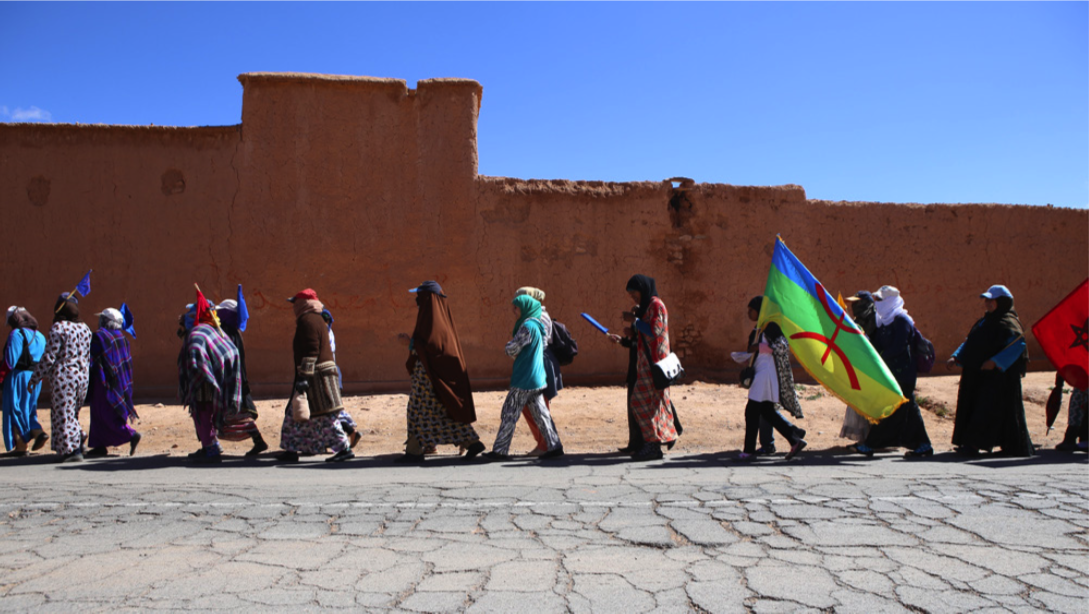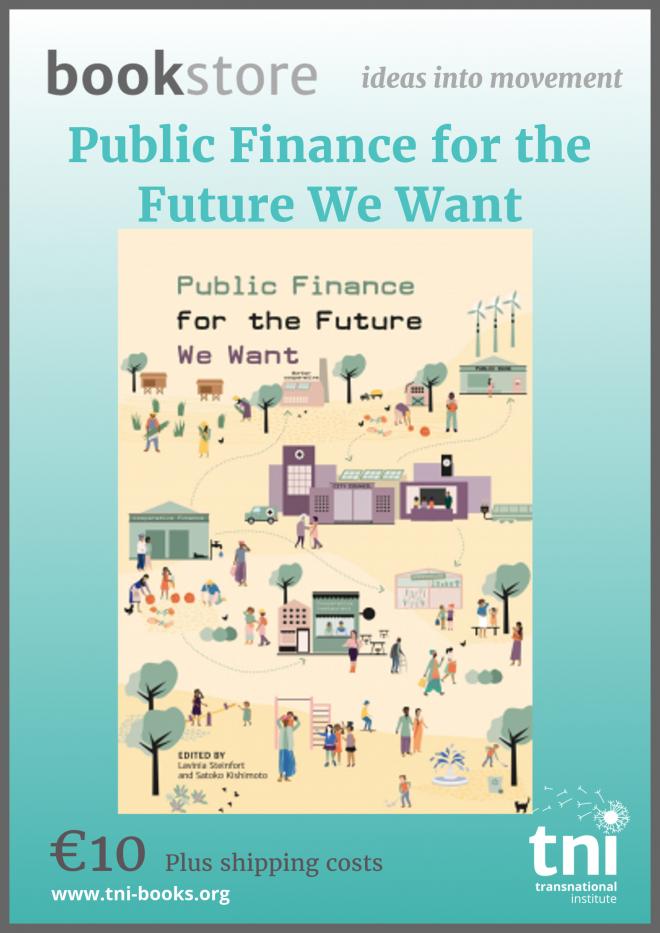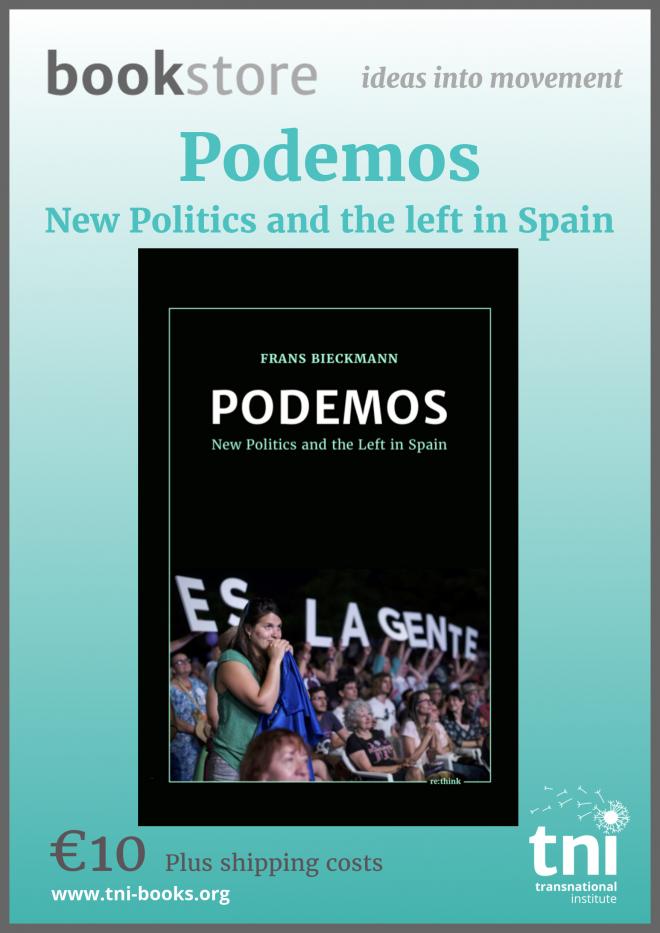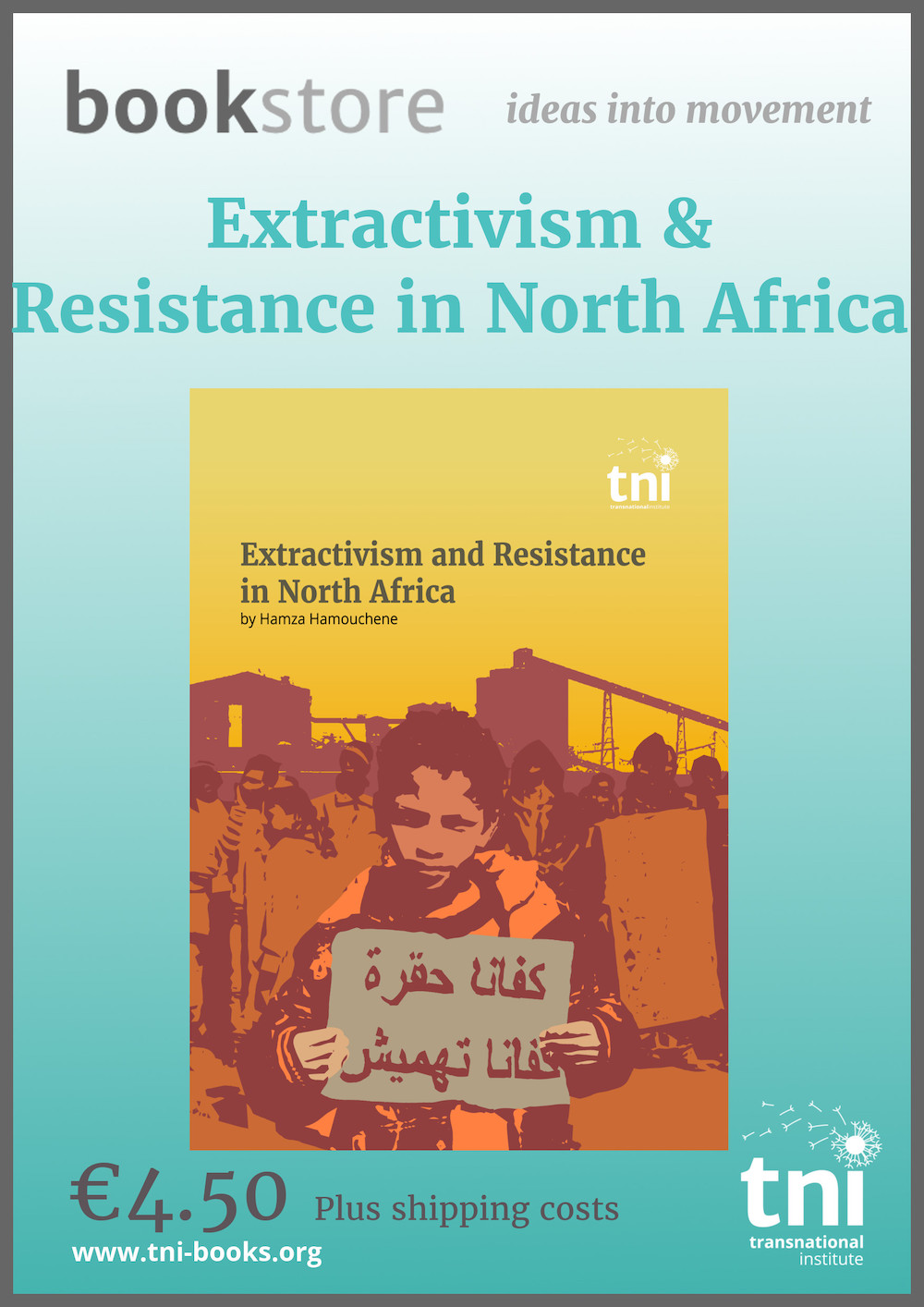|
|
|
Extractivism in Northern Africa has sustained and deepened global inequalities through commodification of nature and privatisation of resources.
Nota: Este boletín se publica solo en inglés. Si quieres recibir el boletín en español, puedes darte de baja de esta lista y suscribirte en esta. ¡Gracias!
Dear reader,
From large-scale oil and gas extraction in Algeria and Tunisia, to phosphate mining in Tunisia and Morocco, to water-intensive agribusiness and tourism in Morocco and Tunisia, Northern Africa’s natural resources are being widely exploited to feed the global economy. The commodification of nature and privatisation of resources involved in these projects has led to serious environmental damages.
But representative of grassroots organisations, social movements and peasant communities are resisting the looting of their subsoil resources, the despoliation of their lands, pervasive environmental destruction and the loss of livelihoods. Read our latest report, Extractivism and Resistance in North Africa, to find out more.
|
 Amazigh women of Imider protesting against the silver mine that has drained their water reserves for decades and devastated their agricultural community. Photo credit: Nadir Bouhmouch. Amazigh women of Imider protesting against the silver mine that has drained their water reserves for decades and devastated their agricultural community. Photo credit: Nadir Bouhmouch.
|
Here in Amsterdam, we are happy to finally reveal the winners of the 2019 Transformative Cities award. Check out which initiatives take home the People’s Choice Award this year.
As the end of the year approaches, please consider making a donation, however small, to help sustain our work. We are grateful for the generosity and solidarity of our wider community.
|
|
|
|
|
|
|
|
|
This report documents several cases of natural resource extraction which take the form of brutal "accumulation by dispossession," degrading environments and ecosystems through the privatisation and commodification of land and water. However, these extractive activities have also been met with new waves of resistance and the entrance of new social actors onto the scene, demanding that wealth generated in resource projects be shared equitably in society. Are these new actors mainly motivated by environmental concerns, or are they fundamentally anti-systemic, seeking to undermine the basis of the capitalist extractive economy? Are these passing episodes of resistance, or do they represent a new development in the historical trajectory of class struggle in North Africa?
Read more.
|
|
|
|
|
|
|
|
|
|
|
Distributed Cooperative Organizations (DisCOs) are a P2P/Commons, cooperative and Feminist Economic alternative to Decentralised Autonomous Organizations (or DAOs).
DisCOs bring together the worlds of the Commons and P2P, Open and Platform Cooperativism, Distributed Ledger/Blockchain tech, and Feminist Economics together in a fresh, radical framework fit for addressing the challenges of our times.
Find out more.
|
|
|
|
|
|
|
|
|
|
|
This report is set in a wider context in which more than 70.8 million people worldwide have been forcibly displaced, according to the 2018 figures from the United Nations High Commissioner for Refugees. The report focuses on analysing the tools deployed by Fortress Europe, in this case through Frontex, to prevent the freedom of movement and the right to asylum, from its creation in 2004 to the present day.
Read more.
|
|
|
|
|
|
|

From 16 to 18 October 2019, representatives of member states, intergovernmental organisations, and civil society attended the 6th Intersessional Meeting of the Commission on Narcotic Drugs. On 17 October 2019, representatives of coca and opium growers from Colombia and Myanmar delivered statements highlighting the situation of communities involved in the illicit cultivation of coca and opium in both countries. Have a look at the video featuring Sai Lone's statement about opium growers in Myanmar.
|
|
|
|
|
|
|
|
|
|
|
|
This episode is part 2/3 of the Border Wars series
Border Wars: Corporations takes a closer look at the military and security companies that have benefited from the refugee crisis. These companies provide, among other things, the equipment for border guards, the surveillance technology to monitor frontiers, and the IT infrastructure to track population movements. We will also look at how these companies grow their influence, and how they are implicated in a global restructuring of labour that has led to injustice, suffering, and death.
Subscribe to State of Power on Spotify, TuneIn or AudioBoom
|
|
|
|
|
| Here’s what we’re reading |
|
Climate movement needs more creative tactics
Strikes and marches are the traditional tools of the left. But are they enough for something as big as climate change?
Marijuana legalization leads to more problematic use
A new study found cannabis legalisation leads to more problematic use. However, this does not mean that legalisation should not take place, but rather it shows that legalisation (or legal regulation, more appropriately) should be done correctly, and evaluated & improved regularly.
|
|
|
|
|
|
|
|
|
|
|
Get 15% discount in TNI's Bookshop!
'52YZRI1E' voucher takes 15% off the price (not including the shipping). Valid until 31st of December 2019.
|
|
 |
 |
 |
|
|
|
| |
|
|
|
"If only we had the resources of those we are up against, we could change the world!" - TNI President Susan George
Every amount will make an impact towards the Transnational Institute. You can choose to make a once off gift or ongoing donation of support.
|
|
|
|
|
|
| | | | | |